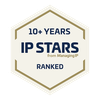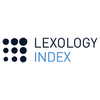Clouds on the horizon – AI in treating diseases

A recent article in the MIT Technology Review
discussed the example of Paul who, after repeated failed attempts at
treating his cancer, entered into a trial run by UK company Exscientia
and is now in complete remission.
The approach proposed by Exscientia allowed an exhaustive search to be carried out for the drug which would successfully treat Paul’s cancer by utilising artificial intelligence to identify small changes in cells responsive to different treatments.
Life saving AI
This is a real life example of the growing role of AI in the treatment of diseases and the development of drugs. The alternative could have been months more in chemotherapy for Paul whilst other drugs were tested. By the time they arrived at the right formula, it may well have been too late for Paul.
The life saving potential of AI is something which should be celebrated. Far too many of us have experienced the pain of a friend or relative being lost to an awful disease such as cancer.
Practicality
In applying these techniques, and training the models which underpin the AI providing the benefits of these techniques, the amount of data generated and processed means the use of cloud computing is inevitable. Cloud computing offers the resources and scope which enable these techniques to be implemented at a practical scale.
Innovating in the Cloud
Whilst the cloud offers the scale necessary to implement these data heavy techniques, the protection of innovation which deploys cloud based technology can be difficult because patents, for instance, are territorial and the cloud is naturally not limited to a single territory.
It is very important, when drafting patent applications covering this technology, that the claims are crafted so that infringers can be caught in a single territory.
In one example, in the field of treating a disease, there could be a first set of claims which cover the provision of a cell sample by a medical practitioner and the interaction between the provided sample and the trained model, and then a second set of claims which relate to the actual product or medical use resulting from the processing of the data taken from the cell sample. The two sets of claims may be pursued in separate patent applications.
Third-party risk
It is always advisable, when considering launching a product, to consider third-party patent infringement risk. The amount of innovation in this area means the presence of third-party patents is almost inevitable. These third-party patents should be reviewed with care to determine infringement risk and also to ascertain potential design around options. The
territorial scope of the claims of these patents should be considered carefully. It may be that a patent limits its processing to be carried out in the same jurisdiction as where the cell sample is captured, for instance. This may provide a design around option where the processing and cell capture are carried out over multiple jurisdictions.
Work with a specialist
Whilst the story of Paul is factual, these examples of patent risks are heavily idealised and it is often the case that, in reality, the situations are more complex. For this reason, it is advisable to seek assistance from a patent attorney as soon as possible. At Murgitroyd we have developed multidisciplinary expertise across software, artificial intelligence, pharmaceuticals and drug development and so we are ideally placed to advise you regarding the protection of your innovations in this area.
If you are developing AI-based approaches to treatment of diseases and drug development then please do not hesitate to get in touch.




















